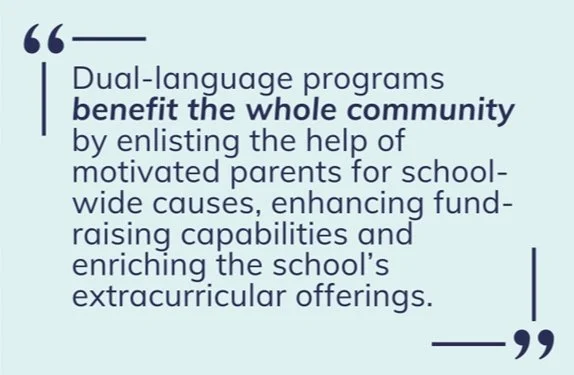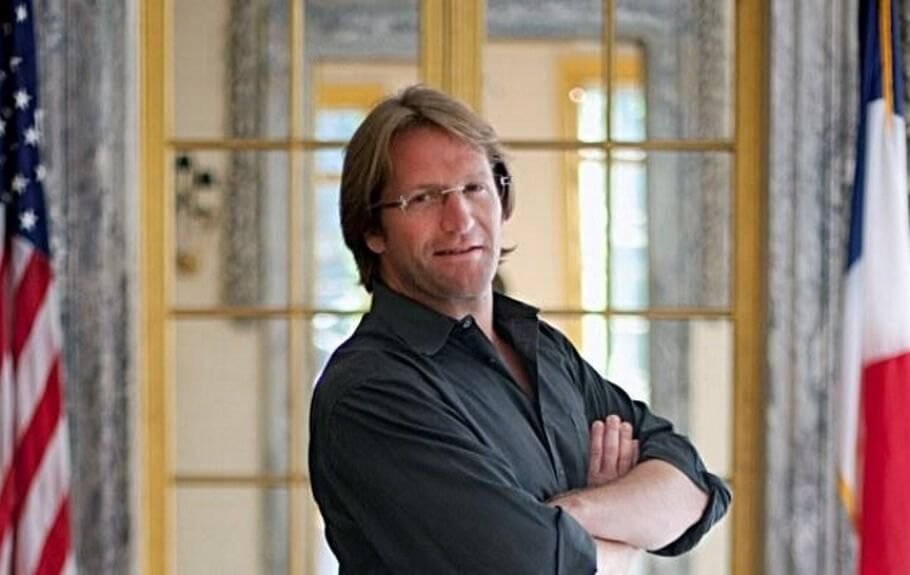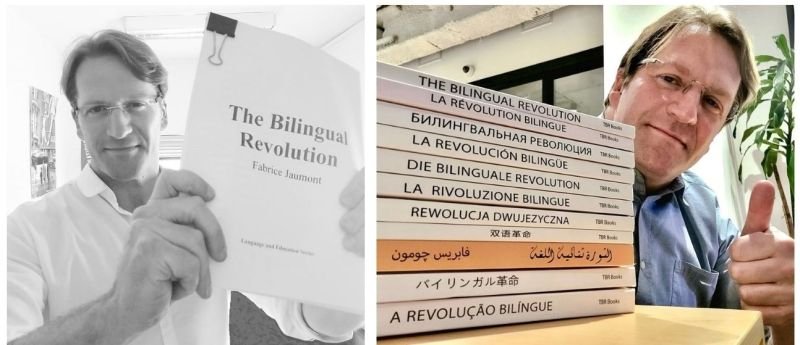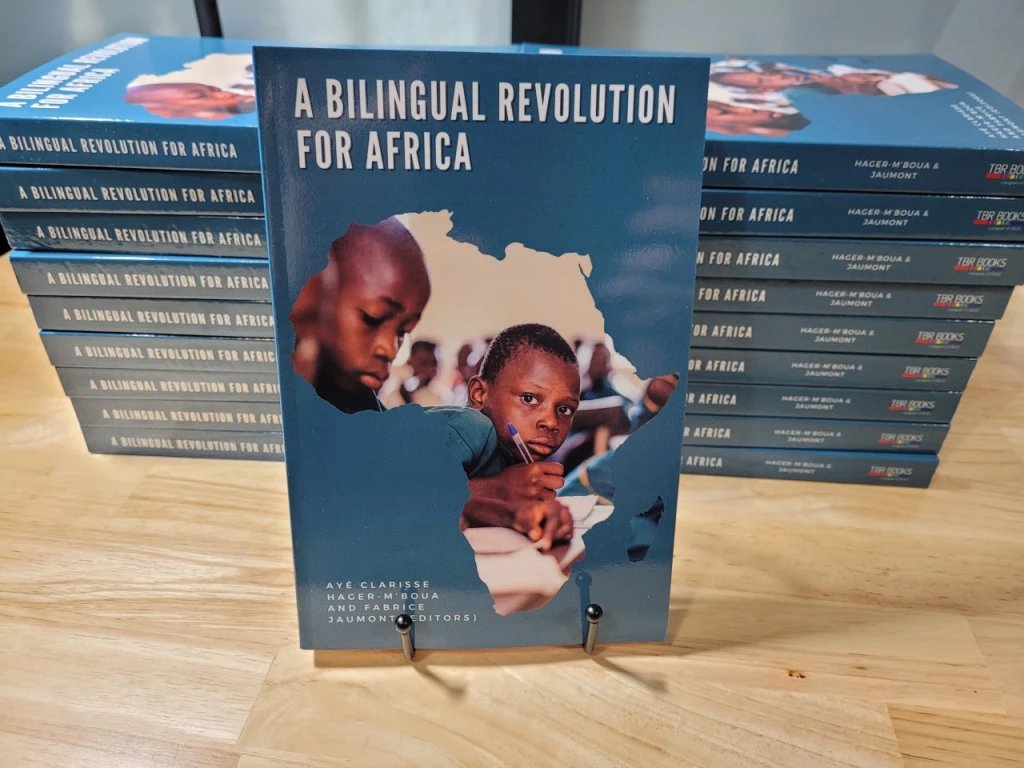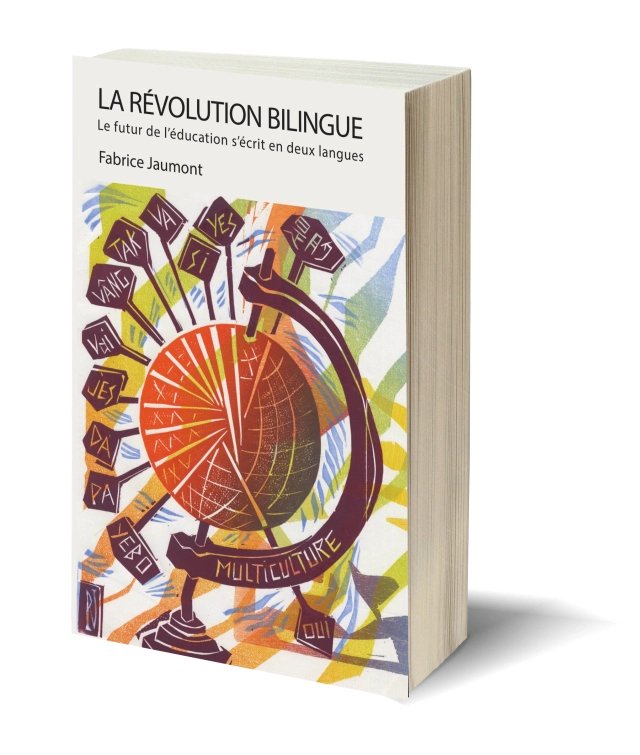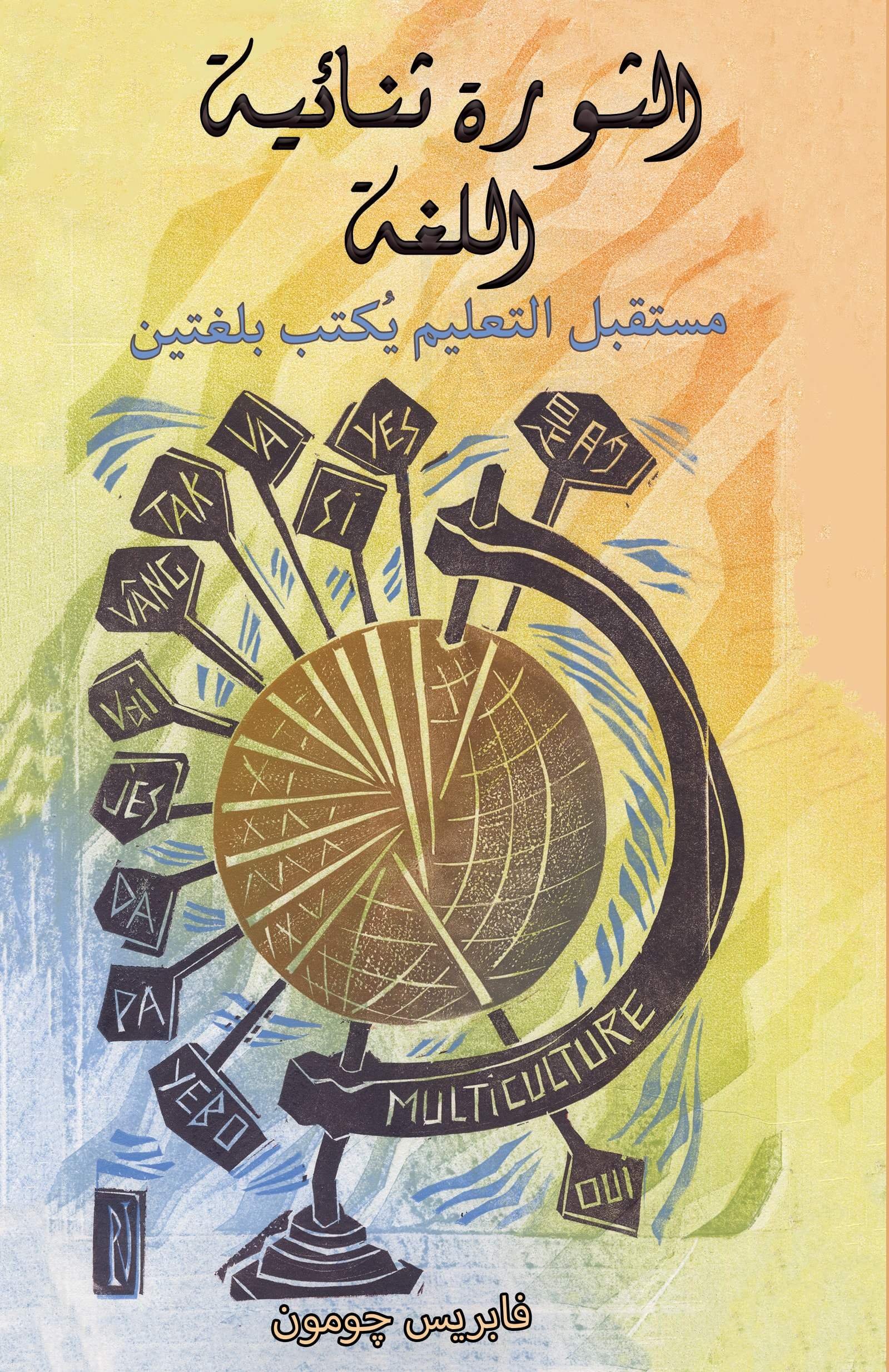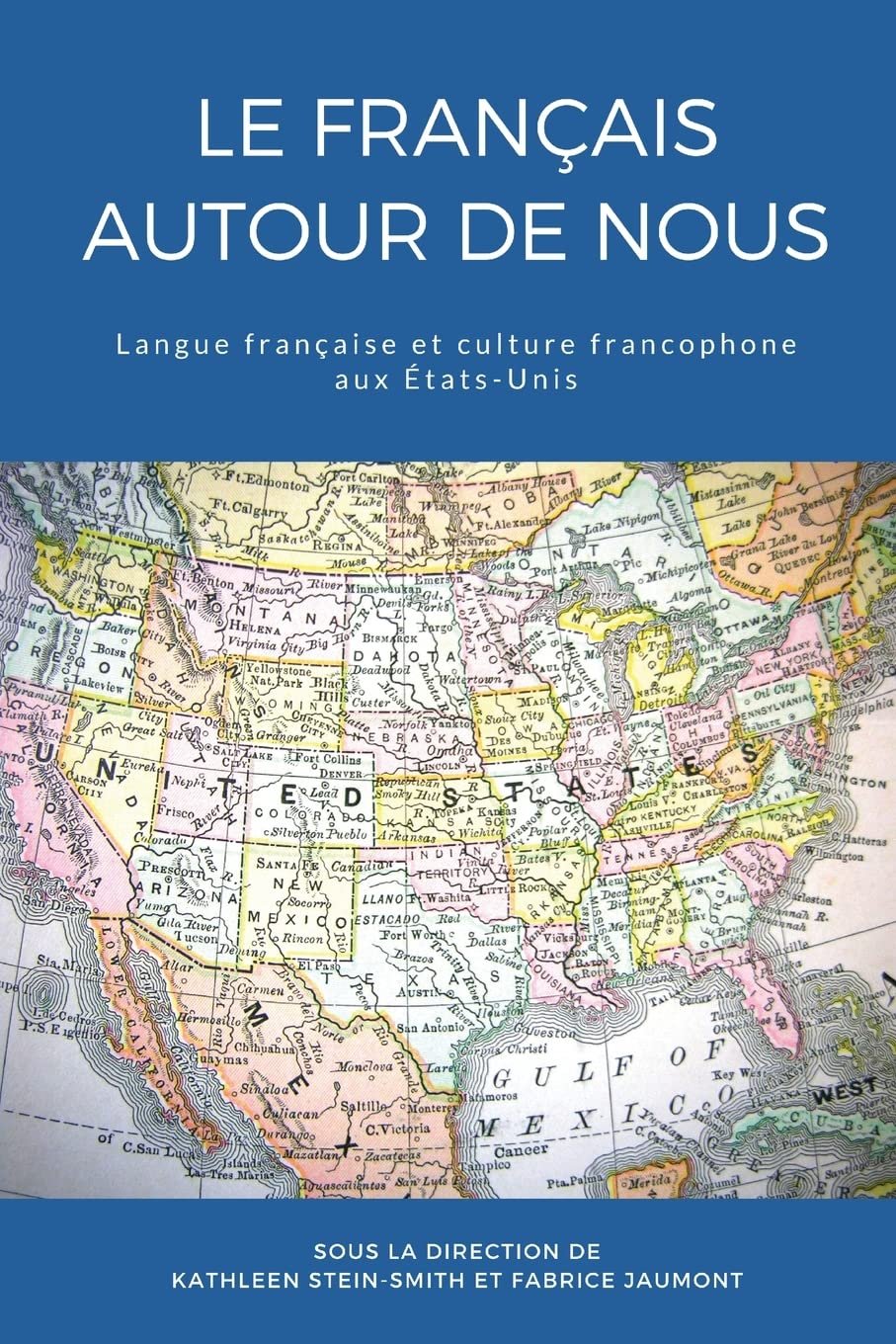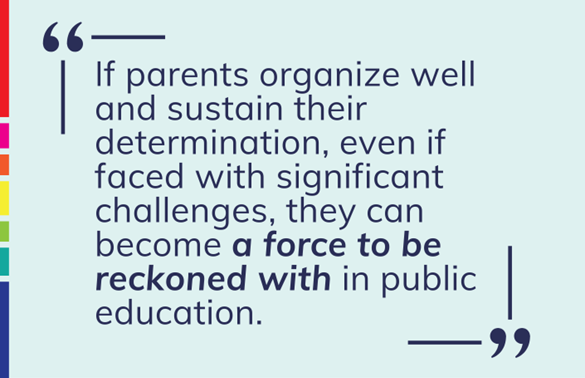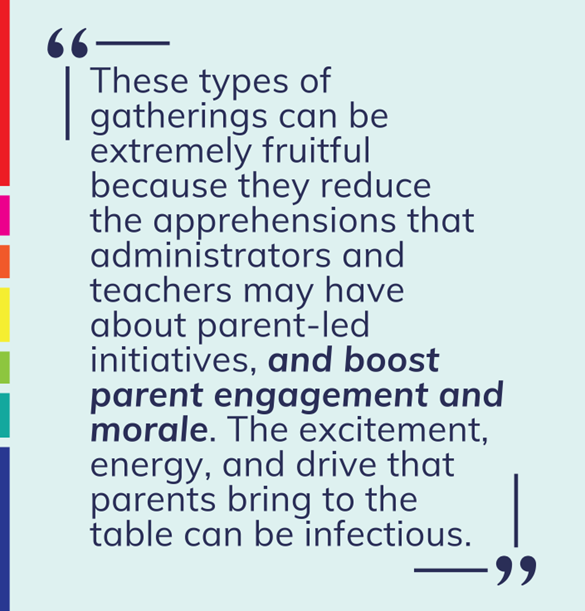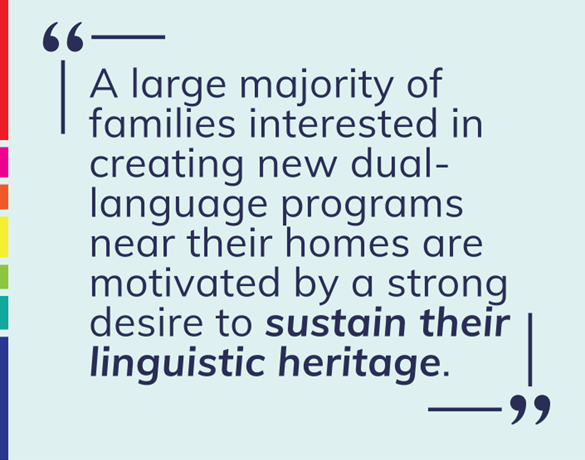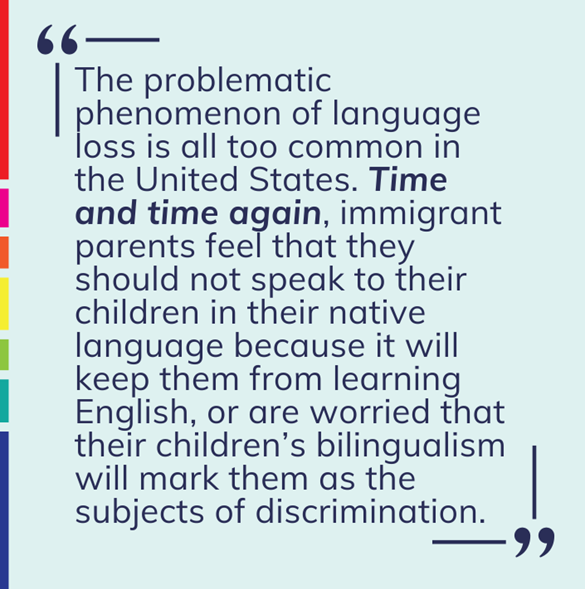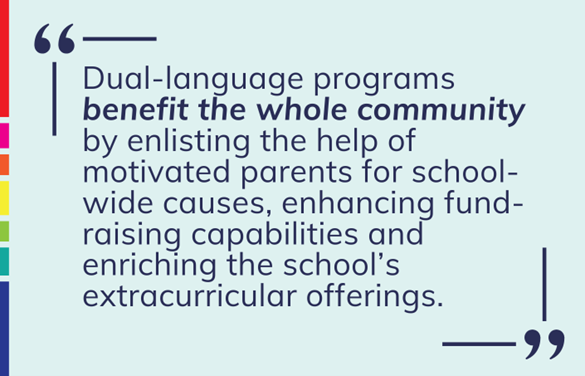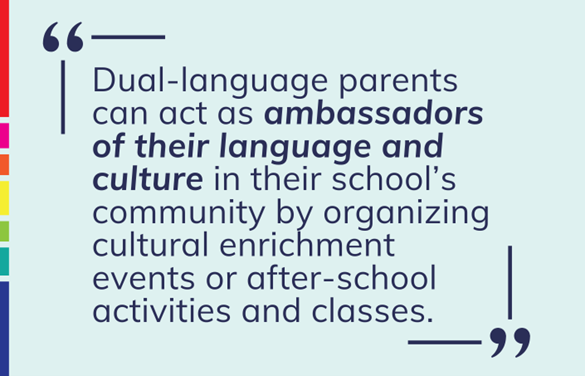Parents: The Unsung Heroes of Bilingual Education Revolution!
Intro by Michelle Glorieux of TA-DA!
“I'm just one parent. What difference can I make?"
If this thought has ever crossed your mind, you're in the right place today.
We're dedicating an entire trilogy to debunk this very myth and to demonstrate the enormous power your individual voice holds, particularly when it comes to the issue at hand: bilingual education.
Welcome to Day 15 of our 20-day Blogathon, focused on debunking myths and empowering families to embrace bilingualism!
The role of schools in family bilingualism is so crucial that we're extending the conversation of Day 15 into three complementary parts, featuring insights from three different experts.
Throughout this expanded Day 15 discussion, you'll engage with professionals in the field, delve into the vital role parents play, and glean actionable insights on how to significantly impact your child's journey through bilingual education in formal settings.
Kicking us off, we're honored to host Fabrice Jaumont, a distinguished French diplomat and acclaimed author on bilingualism.
Through his unique perspective, we'll investigate the significant impact that you, as parents, can indeed have on shaping and influencing bilingual programs.
So, without further ado, let's plunge into part one: Parents, the Unsung Heroes of the Bilingual Education Revolution.
Day 15, Part 1: Exploring the Impact of Parents in Bilingual Education
The Willpower of Parents
By Fabrice Jaumont
Throughout history, parents have always been the backbone of a child’s education, shaping their futures in countless ways.
In recent times, this role has expanded, with parents around the globe championing bilingual education.
1. KNOWING YOUR POWER
Many successful bilingual programs, especially in the US, have sprouted from the determination and advocacy of parents. These proactive families have not only requested dual-language programs but have also contributed financially, volunteered, and demonstrated the myriad advantages of bilingual instruction. And while the task of convincing school authorities often falls upon their shoulders, organized and resolute parents can indeed reshape public education.
💡Did You Know?
In Utah, persistent efforts by parents led to the Utah Dual Language Immersion Act of 2008, creating over 200 dual-language programs across various languages. Moreover, a study by the Center for Applied Linguistics shows that dual-language programs improve overall academic performance.
- TA-DA!
2. BUILDING BRIDGES
Effective communication between parents and educators is essential. Community meetings, while not always prioritized by school administrations, can alleviate apprehensions and foster collaborations, helping overcome challenges faced in setting up a bilingual program. But in the face of unresponsive authorities, parents must sometimes adopt more confrontational stances to get their voices heard.
💡Did You Know?
Initially, he PS 84 Lillian Weber School in New York City only offered Spanish dual-language programs. However, after a concentrated effort from a committed group of parents who organized town halls, petition drives, and reached out to local politicians, the school introduced a French dual-language program in 2007. Since then, the program has grown to become one of the model dual-language programs in the city.
- TA-DA!
3. SUSTAINING ONE’S HERITAGE
Many families, especially in multicultural hubs like New York City, are driven by a passion to preserve their
linguistic heritage. Dual-language programs offer a beacon of hope against rapid language loss and cultural
assimilation.
4. COUNTERACTING HARMFUL PRACTICES
Embracing one's native language has profound implications. It bridges generational gaps, deepens familial bonds, and counteracts detrimental practices where families, in a misguided attempt to fit in, discard their rich linguistic heritage.
5. CULTIVATING COMMUNITY
Beyond the classroom, dual-language programs break down societal barriers, fostering connections across different linguistic and cultural backgrounds. These programs uplift entire communities, enhancing the local economy, school fundraising, and extracurricular activities.
6. BUILDING SUCCESS
The success of these programs doesn't end at their inception. Parents, as ambassadors of their culture and language, play pivotal roles in enhancing and enriching the dual-language experience. Their involvement, from reading sessions and cultural events to homework assistance, is invaluable.
Bilingual education is more than a curriculum—it’s a movement, and parents are leading the charge. If this topic intrigues you and you’re looking to delve deeper, check out The Bilingual Revolution. It offers an in-depth look at how parents are revolutionizing bilingual education.
Fabrice's insight reminds us that educational change doesn't only rest on the shoulders of institutions; it also depends on us—parents, guardians, caregivers—as active stakeholders.
What role will you play in your child's bilingual journey? Could your voice be the catalyst that transforms your local educational system? There's only one way to find out: take action. Share your thoughts with school boards, mobilize other parents, and demand bilingual education that serves all children. Your advocacy can be the change you wish to see.
But the learning doesn't stop here. Next, for part two this very important discussion, we'll hear from Kathrin Röschel, who heads an esteemed international school in Berlin. Kathrin crafts bilingual experiences that are nothing short of poetic, and I can't wait for you to benefit from her wisdom.
The road to bilingualism can be complex, which is why we're bringing in a multitude of experts to guide you. Want to stay in the loop? Sign up for the TA-DA! Community Newsletter to have our complete Blogathon, along with other crucial bilingual tips, sent directly to your inbox. Please find the signup form below.
If today's conversation resonated with you, don't keep it to yourself. Share it forward. Tag a friend, an educator, or a family member who needs to be part of this crucial dialogue. I would love nothing more than to hear and lift all our voices for this common goal.
Thank you for joining us and helping brighten our world with bilingual+ kids - wiser, kinder and more connected.
Warmly,
Michelle Glorieux
About Today’s Guest Contributor
Fabrice Jaumont, a leading voice in bilingual education
Fabrice Jaumont is a scholar-practitioner, award-winning author, non-profit leader, and education advisor based in New York. He currently serves as Education Attaché for the Embassy of France to the United States, a Research Fellow at Fondation Maison des Sciences de l’Homme in Paris, and an adjunct professor both at New York University and Baruch College.
He is President of the Center for the Advancement of Languages, Education, and Communities, a nonprofit publishing organization based in New York and Paris.
He has published seven books on bilingualism and education, philanthropy and higher education, and cinematography.
Jaumont holds a Ph.D. in Comparative and International Education from New York University.
Hear directly from him on his YouTube page: https://www.youtube.com/c/FabriceJaumontPhD/videos?app=desktop








